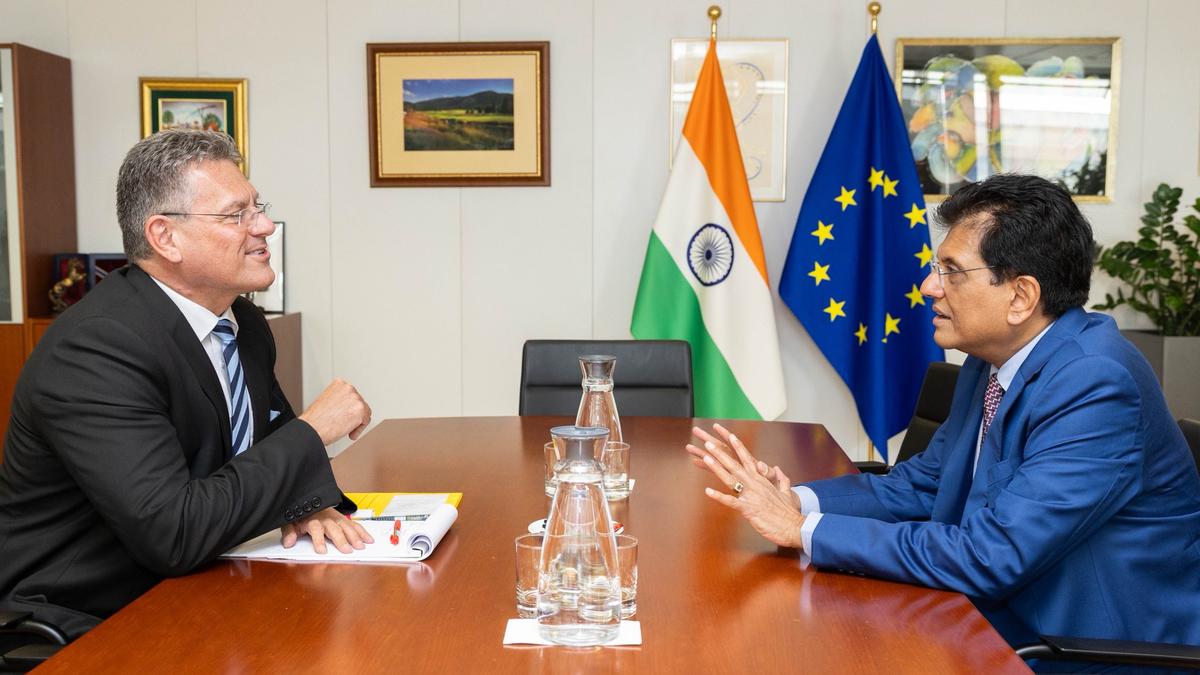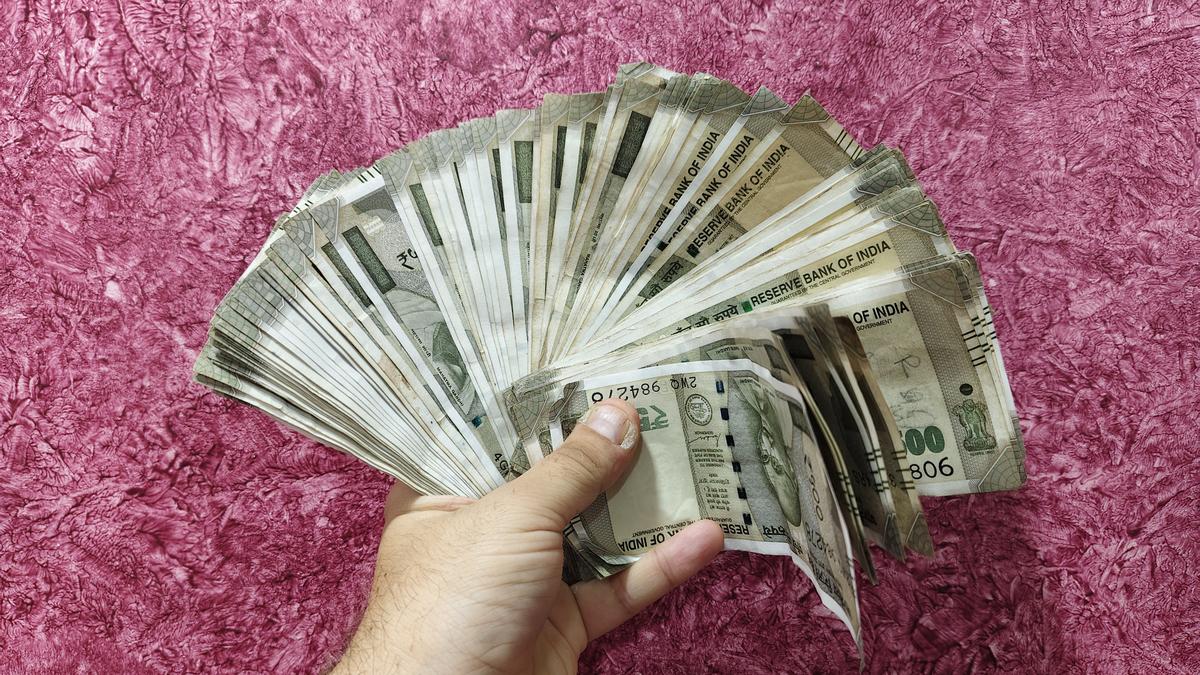
Commerce and Industry Minister Piyush Goyal has met the European Commissioner for the trade Maros Sefkovic in Brussels. (X/@marossefcovic)
Commerce and Industry Minister Piyush Goyal has met the European Commissioner for the trade Maros Sefkovic in Brussels, his second meeting within a month to discuss the proposed Free Trade Agreement (FTA), currently under interaction between the two regions.

Mr. Goyal traveled to Brussels from Washington on 23 May, while India’s chief negotiator L Satya Srinivas and his team are already in the European Union headquarters for FTA talks.
Mr. Goyal held meetings with his European Union counterpart earlier this month.
Mr. Sefkovic said in a post on X, “It is happy to welcome my friend and opposition @Piyushgooyal. We make progress. Let’s maintain speed – with hard work, clear focus – and I am ready for my next meeting soon,” Mr. Sepochakovic said in a post on X.
In response, Mr. Goyal said in a post on the social media platform, “We are committed to the common prosperity of India and the European Union. We continue this pace!”.
These discussions consider importance as India and 27-Nation European Union, concluding the talks for an initial crop trade agreement by July.
Early crops or an interim trade agreement may include issues such as intellectual property rights (IPRs), government procurement, tariffs and non-tariff barriers.
Officials from both sides recently concluded the eleventh round of talks in the national capital on 16 May.

An official recently said, “We are looking for an early crop. We are trying to do it as soon as possible.”
Both sides have agreed to end the agreement in two stages due to the uncertain global trade environment, especially due to American tariff action under President Donald Trump.
India has followed the practice of interacting on the trade treaty with Australia in two phases. The initial harvest treaty gives rise to a complete free trade agreement.
In addition to the demand for significant duty cuts in automobiles and medical devices, the European Union wants a decrease in taxes in products such as wine, spirit, meat, poultry and a strong intellectual property regime.
Indian goods exports to the European Union, such as prepared textiles, pharmaceuticals, steel, petroleum products, and electrical machinery, if successful can be more competitive when successful.
In June 2022, India and the 27-Nation European Union’s BLOC resumed a conversation for a comprehensive free trade agreement, an investment protection agreement and a compromise on a geographical signal (GIS) after a gap of eight years.
Dialogue stopped in 2013 due to differences at the opening level of markets.
On 28 February, Prime Minister Narendra Modi and European Commission Chairman agreed to seal a much awaited free trade deal by the end of this year.
The India-EU trade treaty talks include 23 policy sectors or chapters in goods, including trade, investment, sanitary and phytosaitary measures, technical barriers for business, business remedies, original rules, customs and business facilities, competition, business defense, government procurement, dispute, intellectual rights, geographical signs, and sustainable development.
India’s bilateral trade in goods with the European Union was $ 137.41 billion in 2023-24 (exports of US $ 75.92 billion and import of USD 61.48 billion), it makes the largest trading partner for goods.
The European Union market is about 17 percent of India’s total exports, while the European Union exports in India are 9 percent of their total foreign shipment.
In addition, in 2023, bilateral trade between India and the European Union was estimated at USD 51.45 billion.
Published – May 24, 2025 11:05 pm IST

